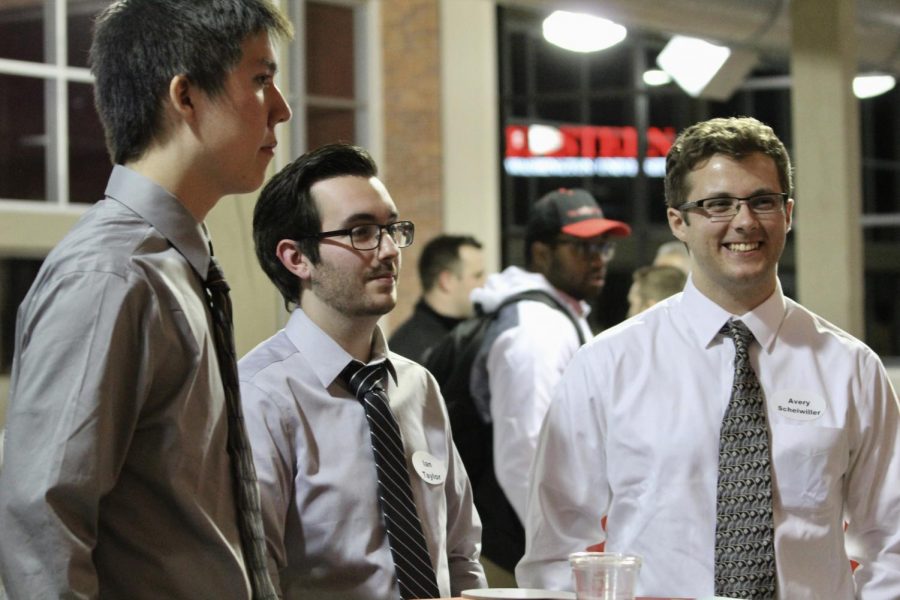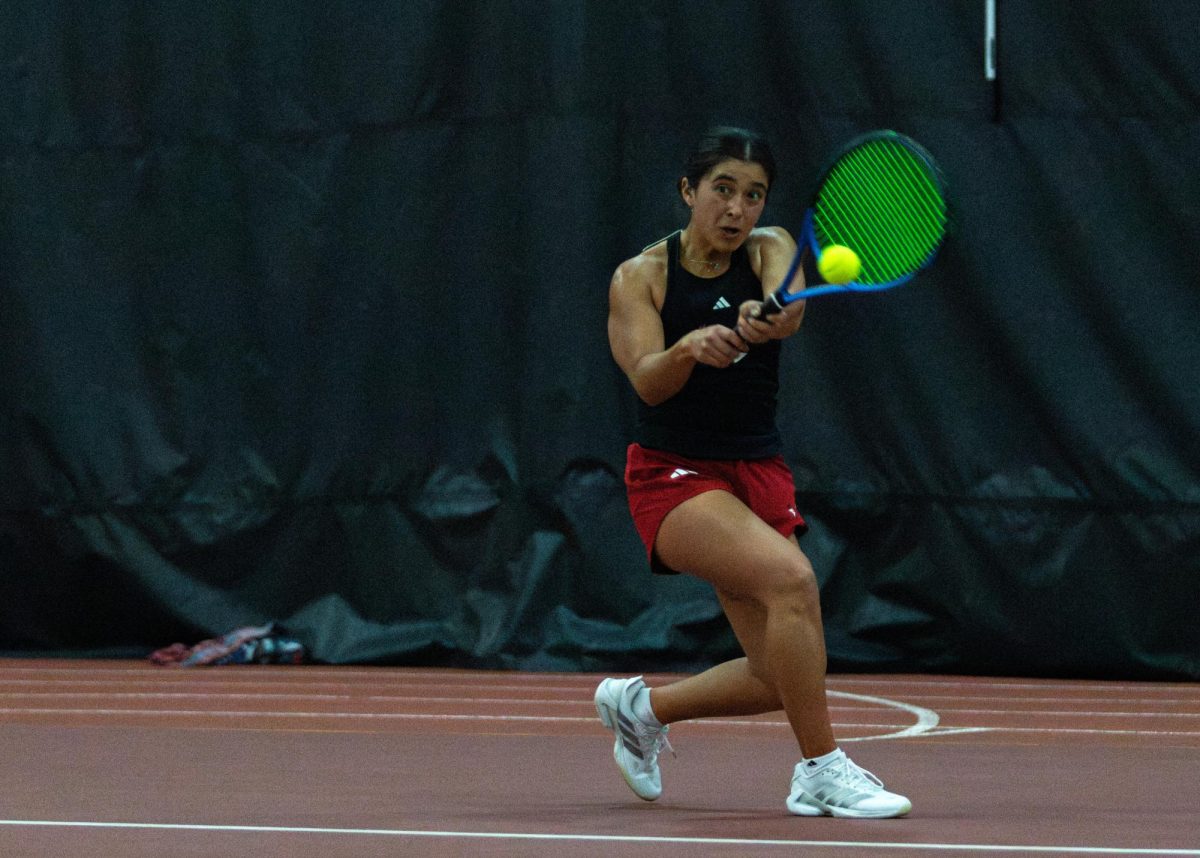Aspiring EWU entrepreneurs compete for $5,000
Six teams advance in Center for Entrepreneurship’s third annual business pitch competition
(Left to right) Tyler Davis, Ian Taylor and Avery Scheiwiller present their business idea to judges. The team placed sixth in the qualifying round, earning a spot in the semifinals.
November 8, 2018
The EWU Center for Entrepreneurship launched the first qualifying round for its third annual business pitch competition on Nov. 6.
The event consisted of 20 teams competing for a chance at a cash prize of $5,000 by explaining their entrepreneurial ideas to judges from all over the community. By the end of the first qualifying round, six teams moved on to the semifinals.
The first qualifying round resembled a game-like atmosphere. Teams of students presented their business ideas to judges in a fun, casual, social learning environment that included food and beverages. The teams received constructive comments and suggestions on how to improve their ideas and presentations.
The entrepreneurship program’s objective is to reach the entire campus with a broad definition of entrepreneurship according to Bruce Teague, the Center for Entrepreneurship director.
“Ideas for ways to change the world and make it better come from students in every background and discipline on campus,” Teague said.
Over the first two years, including the first qualifier round, there have been approximately 113 teams, and the ideas pitched have been brilliant according to Teague.
“It’s amazing what happens when you unleash EWU students, and the things that they have competed with are amazing,” Teague said.
Ryan Arnold, who was one of the judges that evening from North Idaho College, described his criteria that he was looking for in the ideas that students were pitching.
“Strength in the business plan, there’s two components to that,” Arnold said. “The actual pitch itself, how well do they sell the idea […], strength in the business itself, how does it fit in the market, what sort of research have they done about it and what does the competition look like and where it really fits in.”
Entrepreneurship has been a presence at EWU for two years, and the pitch competition was one of the first events initiated by a contribution from the Hebert B. Jones foundation.
Ahmad Tootoonchi, dean of the College of Business and Public Administration, was in attendance to offer greetings and his gratitude toward everyone’s contribution.
“It engages our students and the spirit of competition, working together and encourage them to develop new ideas,” Tootoonchi said.
Toward the end of the event, the six teams moving on to the semifinals were announced.
In sixth place, was the Magpie pitch with students Tyler Davis, Ian Taylor and Avery Scheiwiller. Fifth place was Intelligent Student by Lloyd Dees, and fourth place was Collusion Vision with students Chris Thompson, Katy Carrothers and Matt Grieve.
Third place was the Bottoms Up pitch by Vanessa Curiel and Marco Gallegos, and second place was Mobile Mechanics by Noah Pratt and Brady Bauer.
The overall winner was Matthew Corson, who presented an idea called Smart Sprinkler, a recreation of a more traditional sprinkler system.
“Each sprinkler head is going to be intelligent and being able to read humidity and temperatures around the sprinkler head itself so that you can save zones and such like that,” Corson said.
Corson’s inspiration for his pitch was when he was working on sprinkler systems and his boss encouraged the idea.
“He pushed me a lot to get this done,” Corson said. “My boss is my advisor, he’s very influential, he’s a great mentor and he kind of just gets [me] going and made sure that I stayed on the right path and all that.”
Teams from the qualifying round that did not make it to the semifinals have an opportunity to compete in the next qualifying round with new or revised ideas, along with new teams. This year, a semifinal round has been added where the 12 qualifiers will compete for one of the eight spots in the finals.
Anyone students with the aspiration to pursue and learn more about entrepreneurship will have an opportunity to get involved. Dates and locations of the upcoming qualifying round will be announced in the beginning of January.








